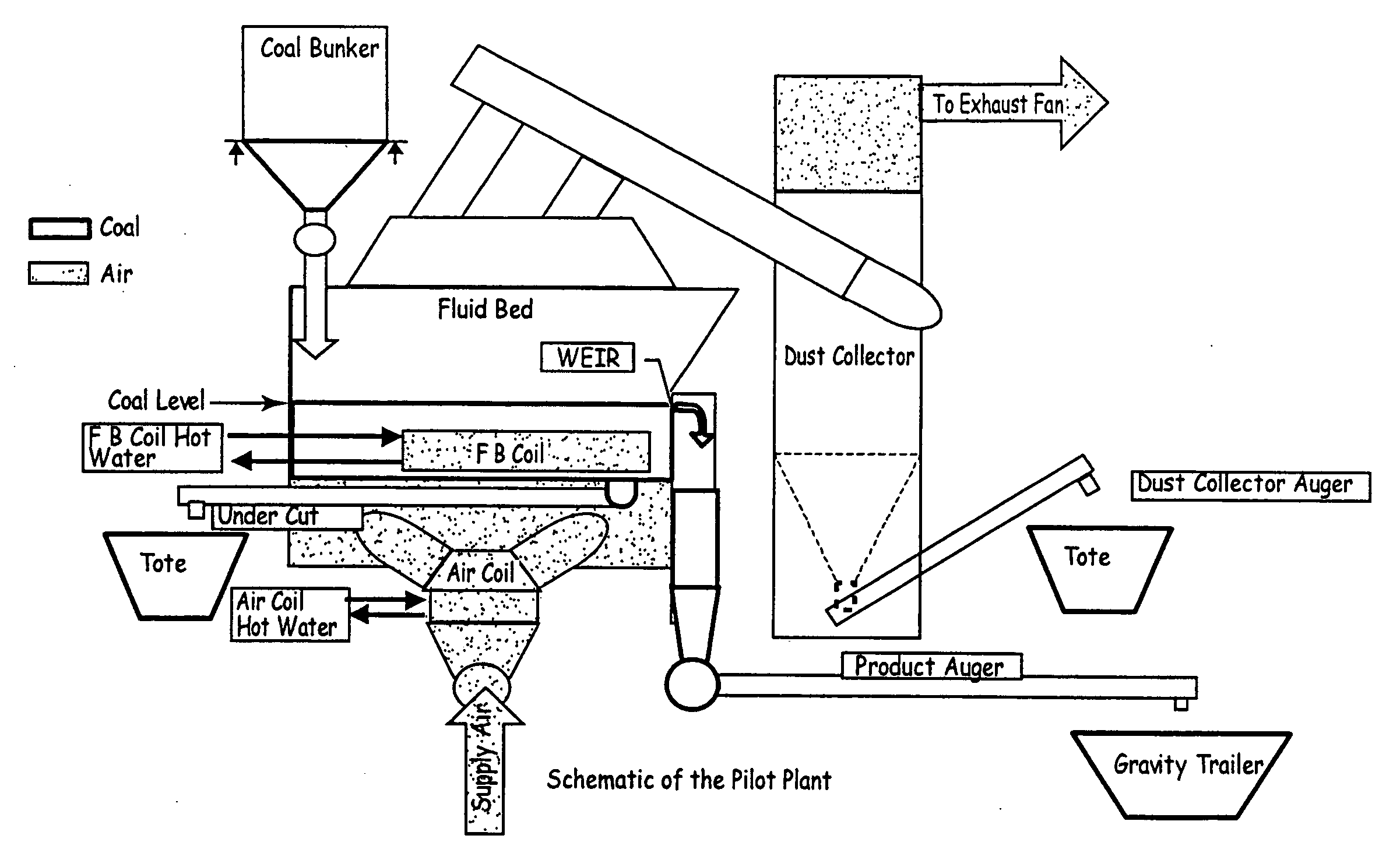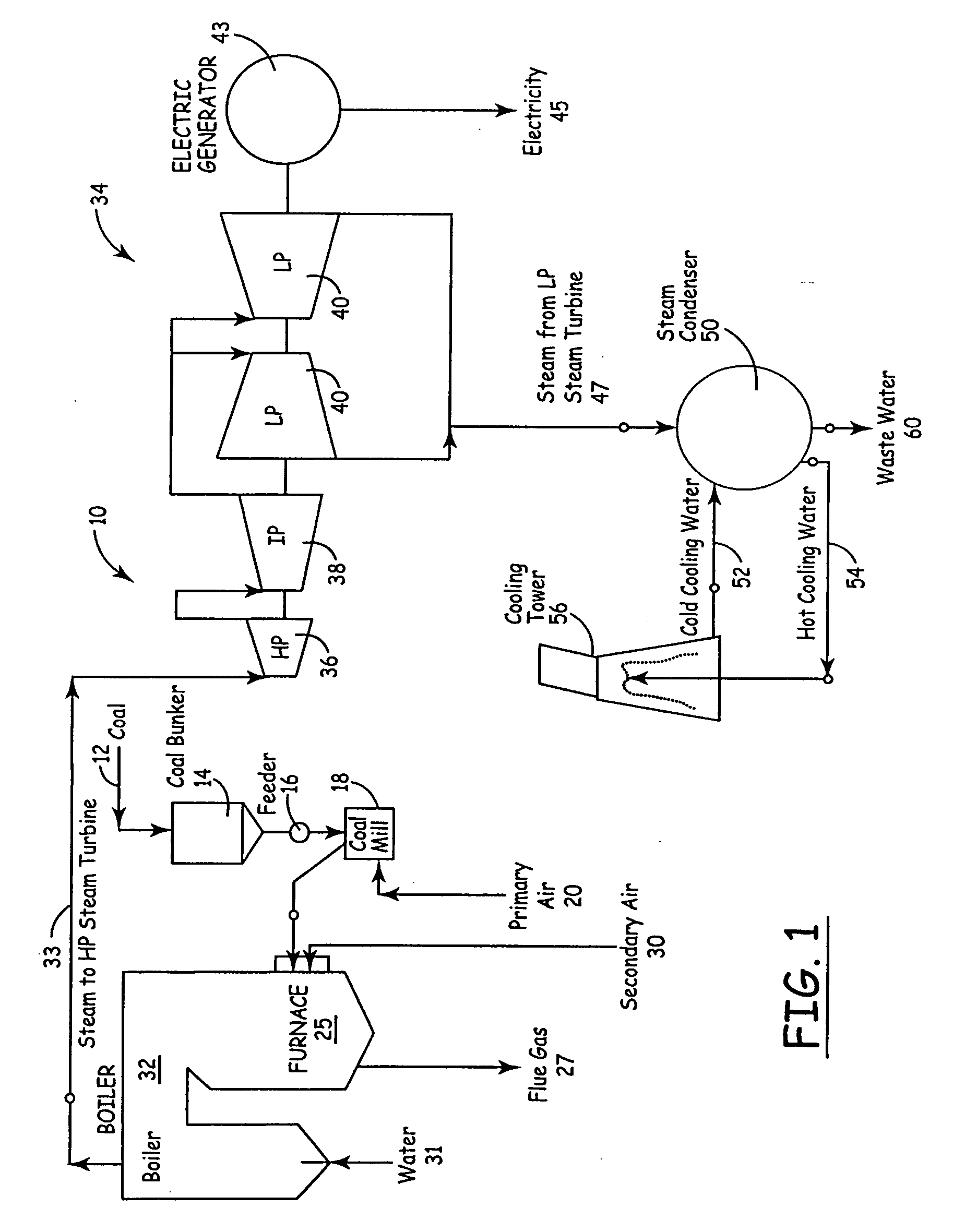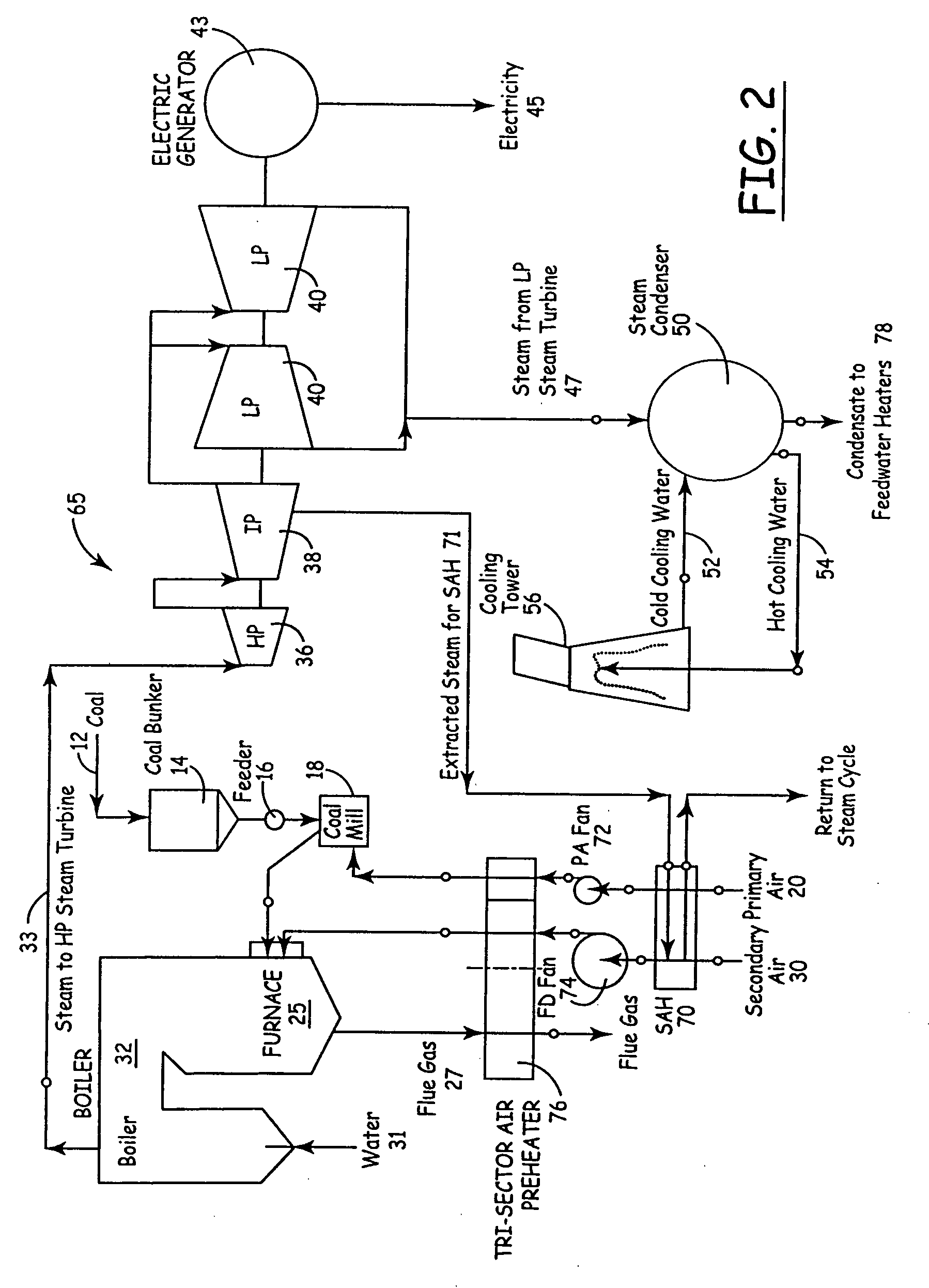Apparatus and method of enhancing the quality of high-moisture materials and separating and concentrating organic and/or non-organic material contained therein
a technology of high-moisture materials and apparatus, which is applied in the direction of separation processes, drying machines with progressive movements, furnaces, etc., can solve the problems of limited desirability of heat extraction sources and reduce power output, so as to reduce the amount of contaminated particulates, increase the amount of usable non-contaminated, and process evenly and quickly
- Summary
- Abstract
- Description
- Claims
- Application Information
AI Technical Summary
Benefits of technology
Problems solved by technology
Method used
Image
Examples
example i
Effect of Moisture Reduction on Improvement in Heat Volume of Lignite Coal
[0243]A coal test burn was conducted at Great River Energy's Coal Creek Unit 2 in North Dakota to determine the effect on unit operations. Lignite was dried for this test by an outdoor stockpile coal drying system. The results are shown in FIG. 43.
[0244]As can be clearly seen, on average, the coal moisture was reduced by 6.1% from 37.5% to 31.4%. These results were in close agreement with theoretical predictions, as shown in FIG. 43. More importantly, a 6% reduction in moisture content of the lignite coal translated to approximately a 2.8% improvement in the net unit heat rate of the coal when combusted, while an 8% moisture reduction produced approximately a 3.6% improvement in net unit heat rate for the lignite coal. This demonstrates that drying the coal does, in fact, increase its heat value.
example ii
Effect of Moisture Reduction on the Coal Composition
[0245]PRB coal and lignite coal samples were subjected to chemical and moisture analysis to determine their elemental and moisture composition. The results are reported in Table 1 below. As can be seen, the lignite sample of coal exhibited on average 34.03% wt carbon, 10.97% wt oxygen, 12.30% wt fly ash, 0.51% wt sulfur, and 38.50% wt moisture. The PRB subbituminous coal sample meanwhile exhibited on average 49.22% wt carbon, 10.91% wt oxygen, 5.28% wt fly ash, 0.35% wt sulfur, and 30.00% moisture.
[0246]An “ultimate analysis” was conducted using the “as-received” values for these lignite and PRB coal samples to calculate revised values for these elemental composition values, assuming 0% moisture and 0% ash (“moisture and ash-free”), and 20% moisture levels, which are also reported in Table 1. As can be seen in Table 1, the chemical compositions and moisture levels of the coal samples significantly change. More specifically for the ...
example iii
Effect of Moisture Level on Coal Heat Value
[0247]Using the compositional values from Table 1, and assuming a 570 MW power plant releasing 825° F. flue gas, ultimate analysis calculations were performed to predict the HHV heat values for these coal samples at different moisture levels from 5% to 40%. The results are shown in FIG. 44. As can be clearly seen, a linear relationship exists between HHV value and moisture level with higher HHV values at lower moisture levels. More specifically, the PRB coal sample produced HHV values of 11,300 BTU / lb at 5% moisture, 9,541 BTU / lb at 20% moisture, and only 8,400 BTU / lb at 30% moisture. Meanwhile, the lignite coal sample produced HHV values of 9,400 BTU / lb at 10% moisture, 8,333 BTU / lb at 20% moisture, and only 6,200 BTU / lb at 40%. This suggests that boiler efficiency can be enhanced by drying the coal prior to its combustion in the boiler furnace. Moreover, less coal is required to produce the same amount of heat in the boiler.
PUM
 Login to View More
Login to View More Abstract
Description
Claims
Application Information
 Login to View More
Login to View More - R&D
- Intellectual Property
- Life Sciences
- Materials
- Tech Scout
- Unparalleled Data Quality
- Higher Quality Content
- 60% Fewer Hallucinations
Browse by: Latest US Patents, China's latest patents, Technical Efficacy Thesaurus, Application Domain, Technology Topic, Popular Technical Reports.
© 2025 PatSnap. All rights reserved.Legal|Privacy policy|Modern Slavery Act Transparency Statement|Sitemap|About US| Contact US: help@patsnap.com



